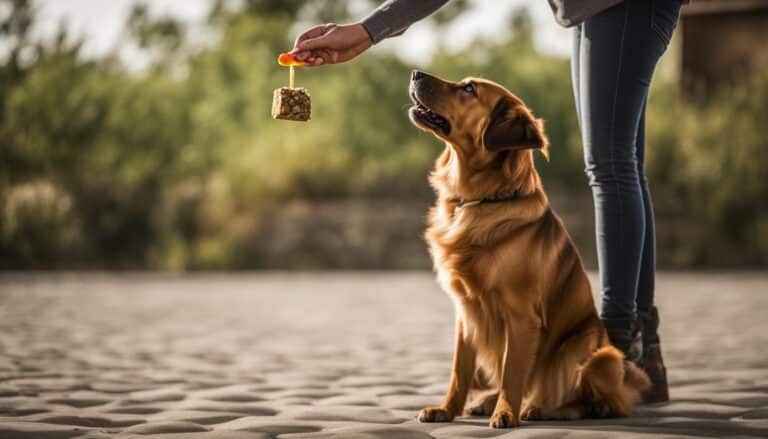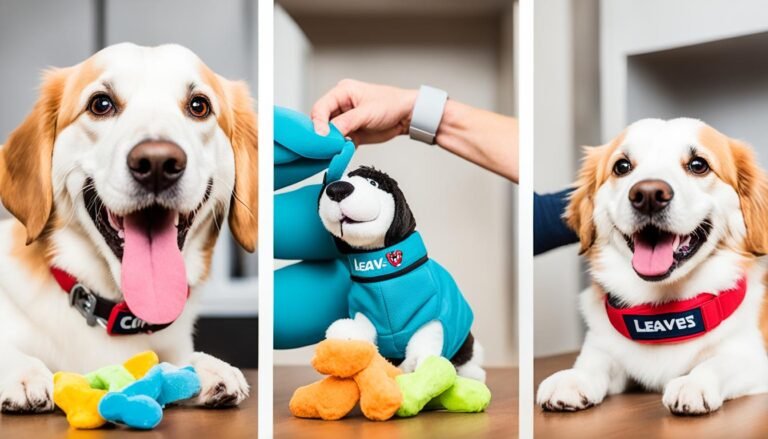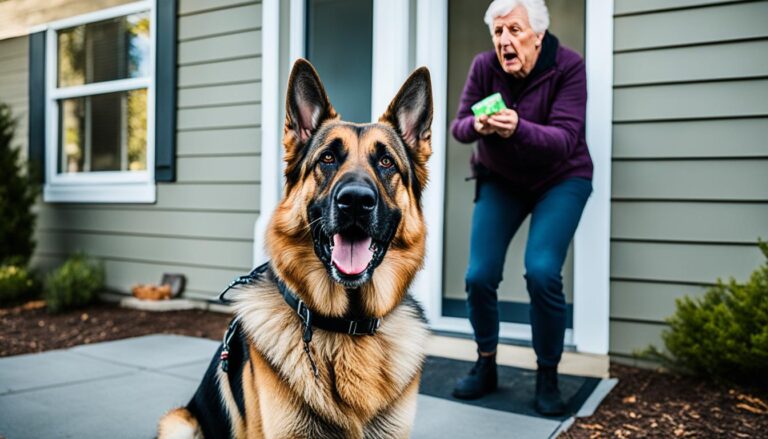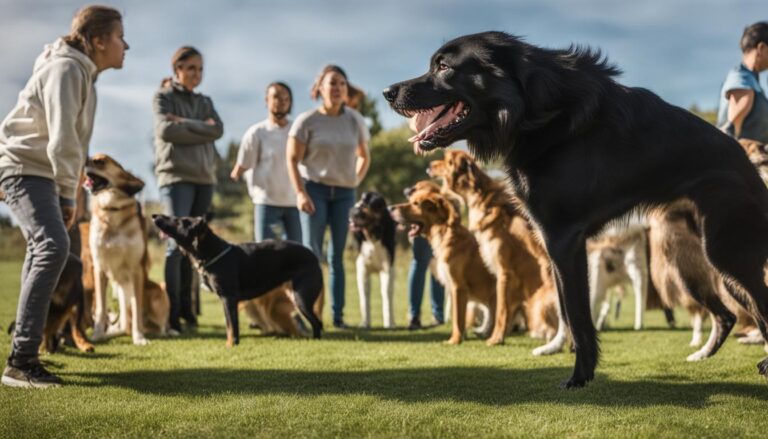Why Is My House-Trained Dog Peeing in the House?
Imagine coming home from a long day at work, excited to be greeted by your faithful furry companion, only to find a puddle of urine on the living room floor. It’s frustrating, isn’t it? You thought you had a perfectly house-trained dog, but now they’re peeing indoors, leaving you puzzled and searching for answers.
Don’t worry, you’re not alone. Many dog owners have experienced this same issue with their house-trained pets. The good news is that there are several potential reasons why this behavior is happening, and we’re here to help you uncover the underlying cause.
Whether it’s medical issues, territorial behavior, psychological stress, or a loss of house training, it’s important to understand why your once-reliable companion has developed this habit of peeing in the house. Only then can you find practical solutions to manage the issue and restore harmony to your home.
In this article, we will delve into each of these potential factors, exploring the possible medical conditions that can contribute to house soiling, the impact of territorial behavior and psychological stress, as well as how to address a loss of house training. We’ll also provide you with invaluable tips to manage house soiling in dogs effectively.
Don’t let dog bathroom accidents dampen your relationship with your four-legged friend. Let’s work together to get to the bottom of this issue and help your house-trained dog thrive once again.
Medical Issues Leading to House Soiling
House soiling in dogs can be attributed to various medical issues that affect their urinary tract or overall health. It is crucial to identify and address these underlying medical causes to effectively manage and prevent further accidents indoors.
One potential medical issue that can lead to house soiling is a urinary tract infection (UTI). UTIs can cause discomfort and frequent urination, making it difficult for your house trained dog to hold their bladder.
Another possible medical cause is the presence of bladder stones. These stones can obstruct the urinary tract, causing pain and increasing the likelihood of accidents inside the house.
Additionally, kidney disease can negatively impact your dog’s ability to control their bladder, resulting in house soiling behavior. It is essential to consult with a veterinarian to determine if your dog’s house training issues are due to an underlying medical condition.
By conducting a thorough examination, your veterinarian can diagnose and treat the specific medical issue affecting your dog. Treating the underlying condition can often alleviate the house soiling behavior. Your veterinarian may recommend medications, dietary changes, or other treatments tailored to address your dog’s health problem.
It’s important to note that other medical issues can also contribute to house soiling, such as diabetes, hormonal imbalances, or gastrointestinal disorders. Consulting with a veterinarian ensures a comprehensive evaluation and appropriate treatment for your beloved dog.
Territorial Behavior and House Soiling
Territorial behavior can be a contributing factor to house soiling in dogs. When there’s a new cat in the home, for example, resident cats may start to mark their territory indoors. To prevent this behavior, it’s important to introduce new cats slowly and provide enough litter boxes for each cat plus one extra.
- Introduce new cats gradually, allowing them to get used to each other’s scent and presence.
- Provide separate spaces for each cat, including their own litter box, bed, and feeding area.
- Ensure that there’s one litter box per cat, plus an additional one. This way, each cat has their own personal space.
- Regularly clean and maintain the litter boxes to encourage proper bathroom habits.
- Consider using pheromone sprays or diffusers to create a calming environment and reduce territorial stress.
By addressing territorial issues and providing a harmonious living environment for your cats, you can decrease the chances of house soiling incidents and promote a peaceful coexistence in your home.

Psychological Stress and House Soiling
Psychological stress can have a significant impact on a house trained dog, leading to house soiling behaviors. Just like humans, dogs can experience stress and anxiety, and it can manifest in various ways, including accidents indoors. Understanding the triggers and sources of stress is crucial in managing and preventing house soiling incidents.
One common cause of psychological stress for dogs is prolonged absence from their owner. Dogs are social animals and thrive on companionship. When left alone for extended periods, they may feel lonely and anxious, which can lead to house soiling as a response to the stress.
Another situation that can cause stress is moving to a new house. Dogs are creatures of habit, and a change in their environment can disrupt their routine and make them feel anxious. As a result, they may engage in house soiling, a behavioral response to stress and the unfamiliar surroundings.
Introducing new people or pets into the home can also be a source of stress for dogs. It can disrupt their established hierarchy and territorial boundaries, leading to anxiety and house soiling. Cats, in particular, are sensitive to stress, and any disturbance in their routine can trigger house soiling behaviors.

Reducing stress and providing a stable environment are essential in addressing house soiling caused by psychological stress. Ensuring your dog receives plenty of attention, exercise, and mental stimulation can help alleviate anxiety and prevent house soiling incidents. Additionally, maintaining a consistent routine and gradually introducing any changes in the home can help minimize stress and its impact on your dog’s behavior. If the stress-related house soiling persists, consulting with a professional dog trainer or behaviorist can provide valuable guidance and support.
Loss of House Training and House Soiling
Even a previously house trained dog can experience setbacks in their house training. Factors such as illness, changes in schedule, or bad weather can disrupt their routine and lead to accidents indoors.
Illness, such as a urinary tract infection or gastrointestinal issues, can affect a dog’s ability to hold their bladder or bowels. This can result in unexpected indoor accidents, even if they have been reliably house trained in the past.
Additionally, changes in schedule, such as a new work routine or family commitments, can throw off a dog’s bathroom routine and lead to accidents. Dogs thrive on consistency, and any disruptions to their established routine can cause confusion and misbehavior.
Furthermore, adverse weather conditions, such as heavy rain, snowstorms, or extreme heat, can make it challenging for dogs to go outside to relieve themselves. In such situations, they may be more inclined to have accidents indoors rather than endure discomfort or risk their well-being outside.
To address this issue, it may be necessary to provide a refresher course on house training. Using reward-based training methods can reinforce positive behavior and motivate your dog to follow the desired bathroom routine. By rewarding them with treats, praise, or playtime for using the designated outdoor area, you can encourage them to consistently go outside to do their business.
Consistency is key in house training. Establish a regular bathroom schedule for your dog, taking them outside at regular intervals throughout the day. Be patient and understanding during this re-training process, as it may take time for your dog to readjust and regain their house training skills.
In addition to re-training, it’s essential to address any underlying medical issues that may be contributing to the loss of house training. If you suspect your dog’s accidents are due to illness, consult with a veterinarian to rule out any health concerns and obtain appropriate treatment.
By understanding the factors that can disrupt a dog’s house training and taking proactive measures to address them, you can help prevent further instances of house soiling. With patience, consistency, and reward-based training, you can guide your dog back to being a reliably house trained companion.
Behavioral Issues Leading to House Soiling
Behavioral issues can contribute to house soiling in dogs. Understanding these issues and addressing them appropriately is essential for preventing further accidents.
Territorial Marking
One common behavioral issue that leads to house soiling is territorial marking. Dogs have a natural instinct to mark their territory by urinating, and this can result in indoor accidents. If you notice your house trained dog marking certain areas of your home, it’s important to address this behavior promptly.
To deter territorial marking, provide your dog with plenty of opportunities for outdoor bathroom breaks. Regularly take them to their designated potty spot and reward them for eliminating there. Additionally, consider using deterrent sprays or diffusers in areas where marking occurs to discourage your dog from returning to those spots.
Anxiety and Stress
Anxiety and stress can also contribute to house soiling behavior. Dogs may urinate indoors as a result of separation anxiety, fear, or other forms of psychological distress. It’s important to identify and address the underlying cause of your dog’s anxiety.
Creating a calm and secure environment for your dog can help reduce their anxiety. Provide them with a comfortable space where they feel safe and secure, and consider using calming aids such as pheromone diffusers or calming supplements. Gradual desensitization and positive reinforcement training can also help your dog overcome their anxiety and reduce house soiling incidents.
House Training Setbacks
Even a house trained dog can experience setbacks in their training, leading to indoor accidents. Various factors such as changes in the home environment, disruptions to their routine, or a lapse in consistent reinforcement can contribute to these setbacks.
To address house training setbacks, it’s essential to reestablish a consistent routine. Take your dog outside frequently, especially after meals, naps, or play sessions. Use positive reinforcement techniques to reward them for eliminating outdoors. Additionally, closely monitor your dog’s behavior indoors and provide redirection and guidance when necessary.
By understanding and addressing these behavioral issues, you can effectively prevent house soiling incidents and maintain a clean and comfortable living environment for both you and your dog.
Tips for Managing House Soiling in Dogs
If you’re dealing with a house trained dog having accidents indoors, don’t worry! There are practical steps you can take to manage this behavior. One effective approach is re-training your dog and reviewing the house training process. By going back to basics and reinforcing positive behaviors, you can help your dog regain their potty training skills.
In addition to re-training, it’s important to increase the frequency of potty breaks. Take your dog outside more often, especially after meals, drinking, and waking from naps. This will give them more opportunities to relieve themselves outside and reduce the chances of accidents indoors.
Identifying triggers and environmental factors that contribute to house soiling is also crucial. Pay attention to any specific situations or stimuli that may lead to accidents. Is it a certain noise, a visitor, or a change in routine? Once identified, you can then address these triggers to help prevent future incidents.
Remember to be patient with your dog throughout this process. House soiling can be a frustrating issue, but with consistent re-training, increased potty breaks, and identifying triggers, you can successfully manage and overcome this behavior. If you’re struggling or need additional guidance, don’t hesitate to seek professional help from a qualified dog trainer or behaviorist.






